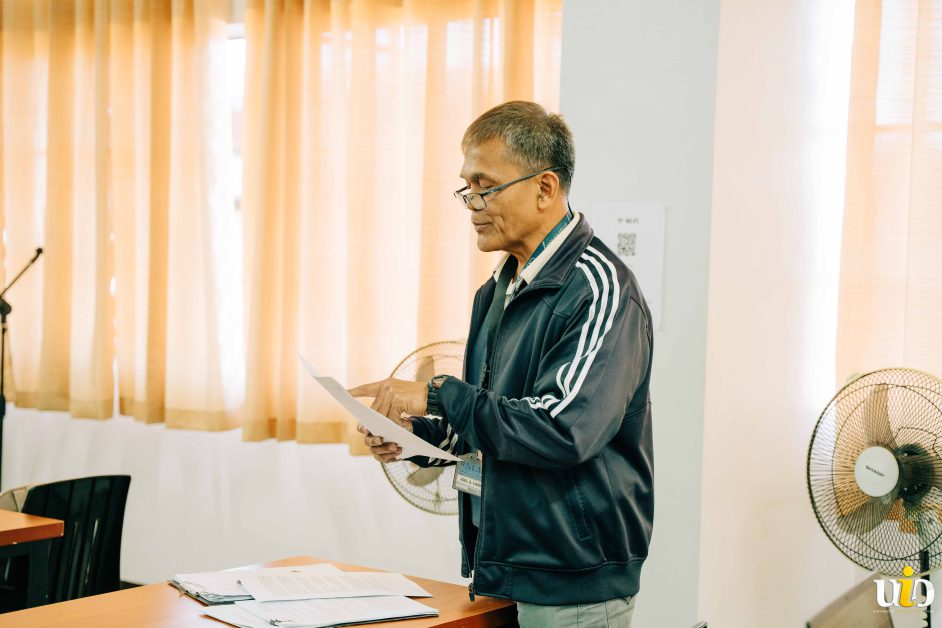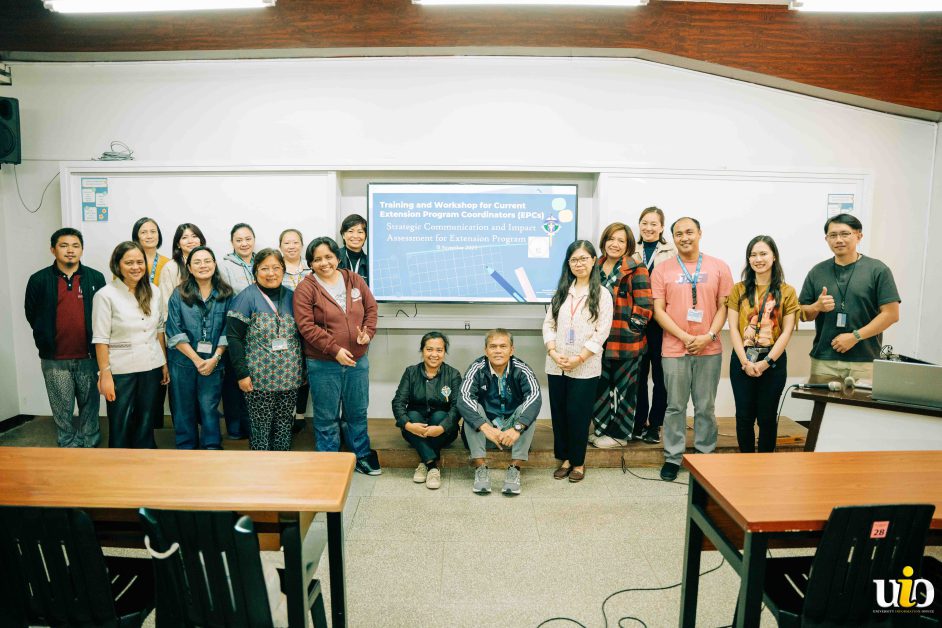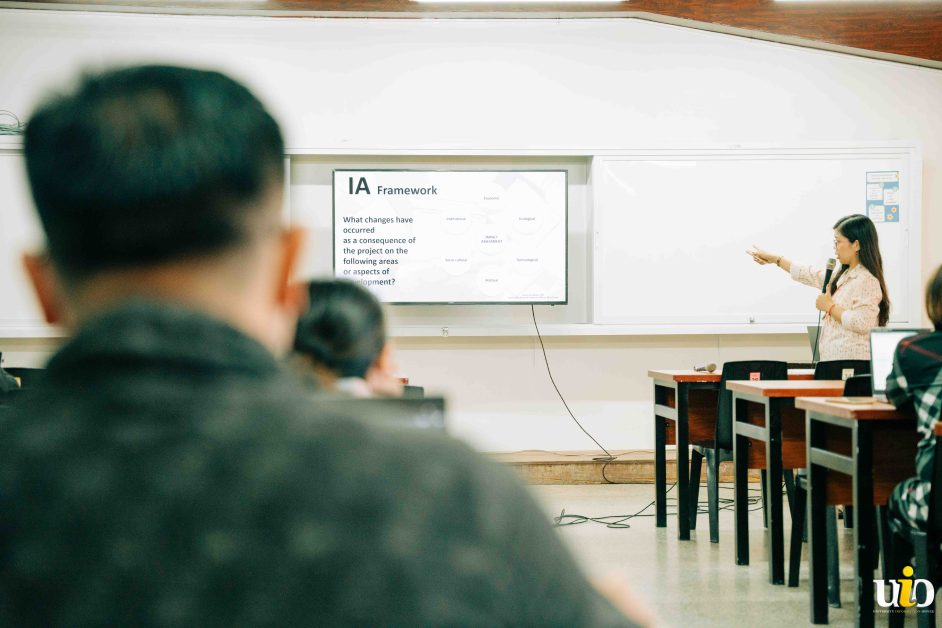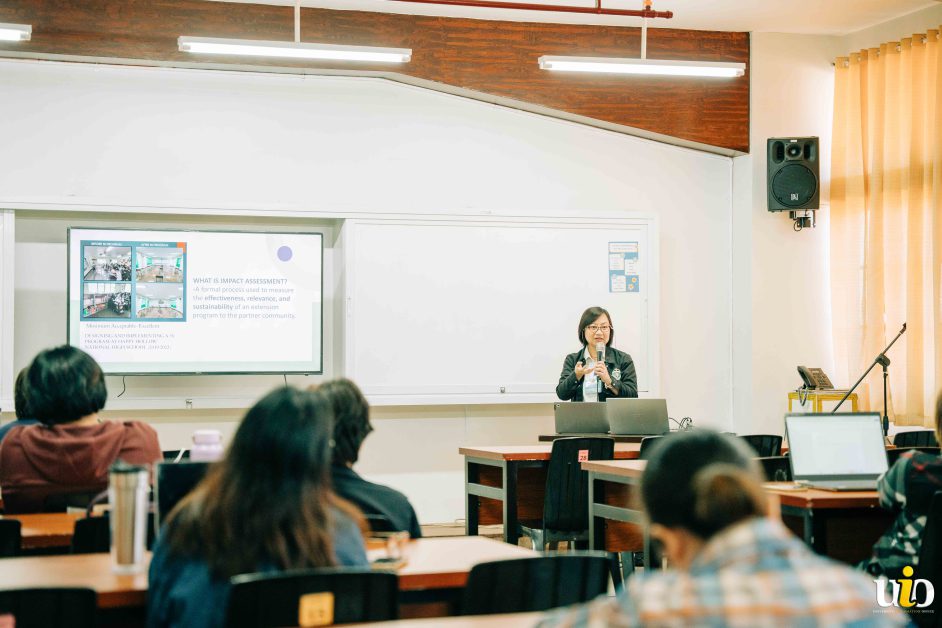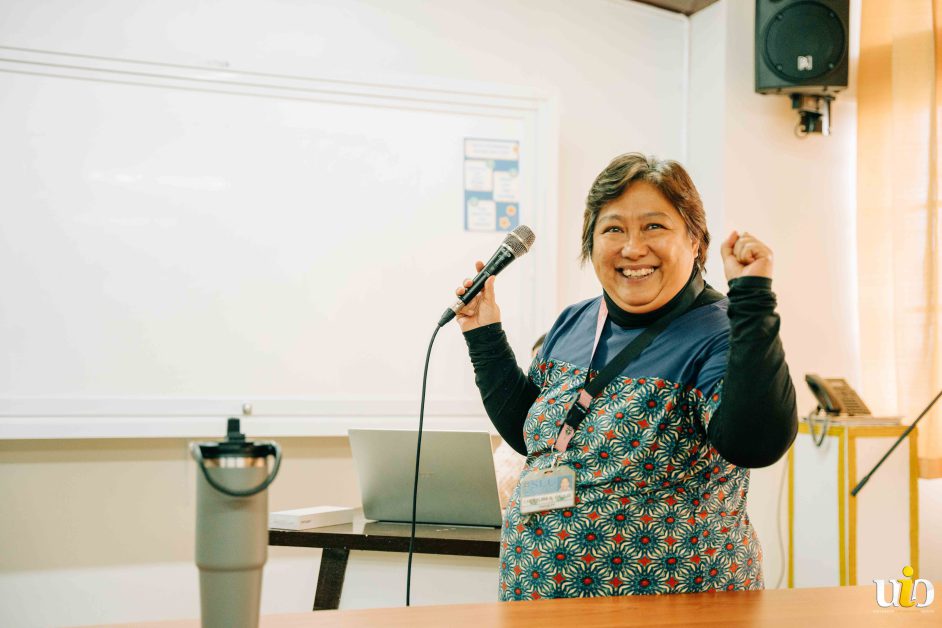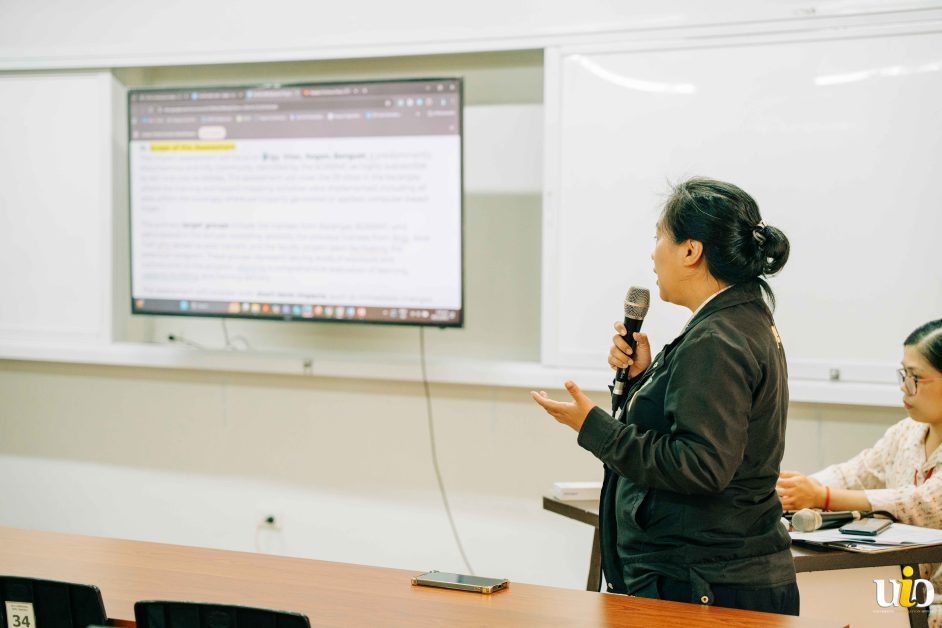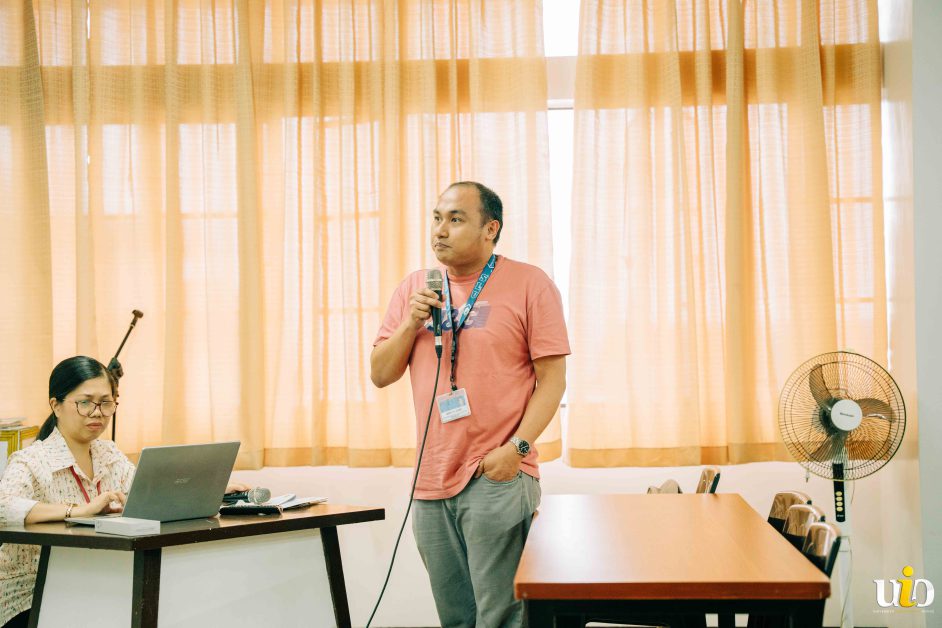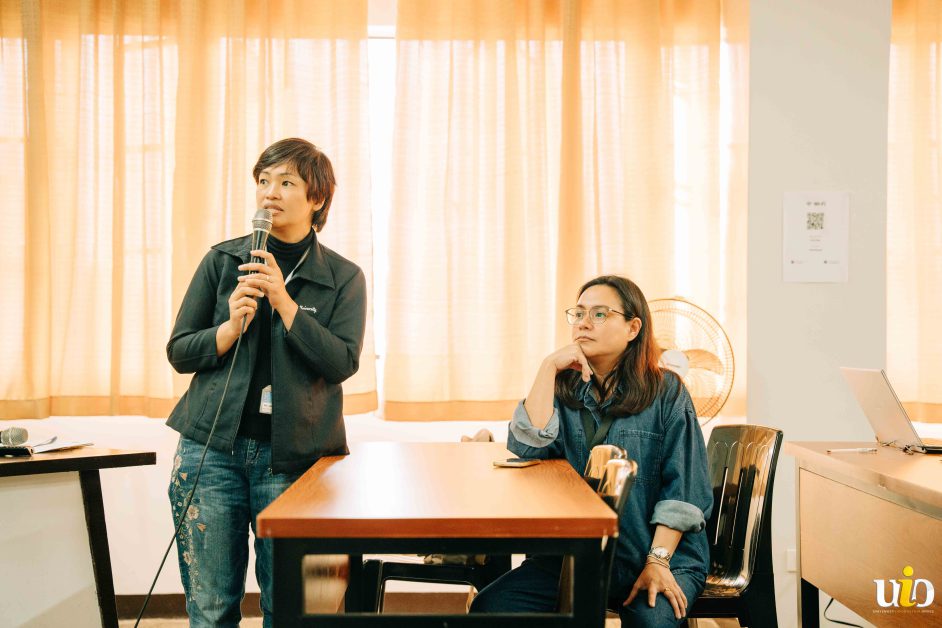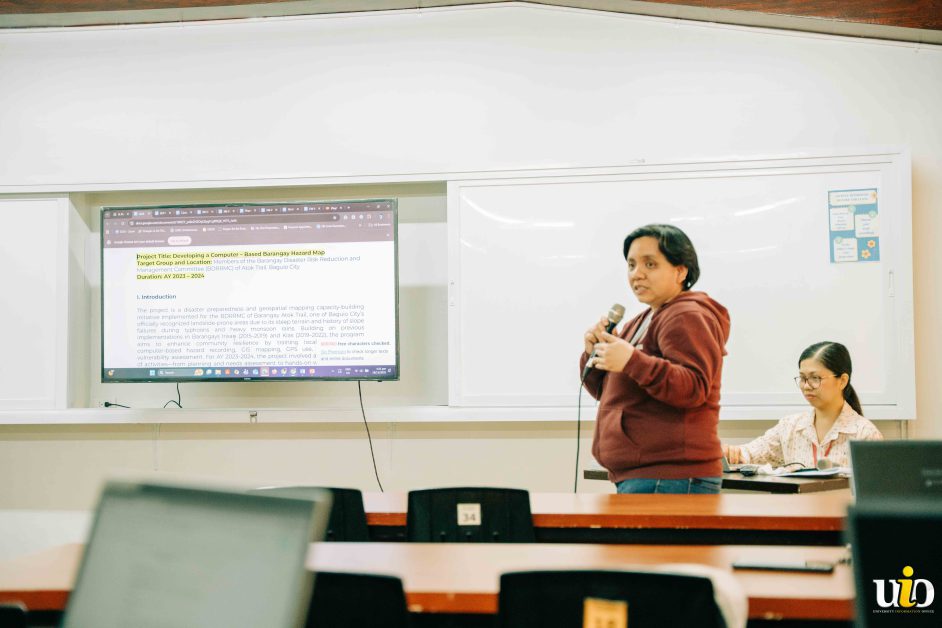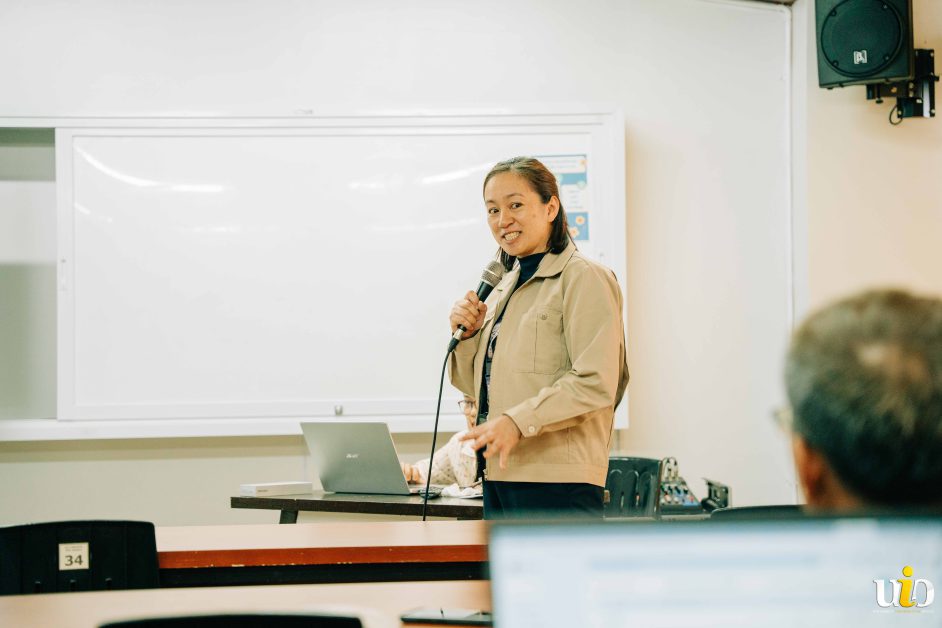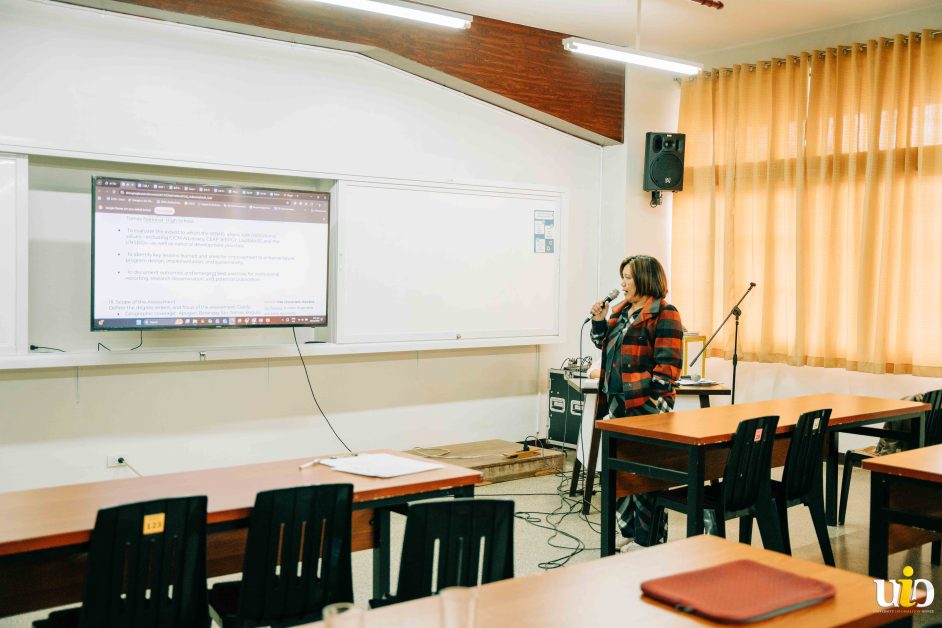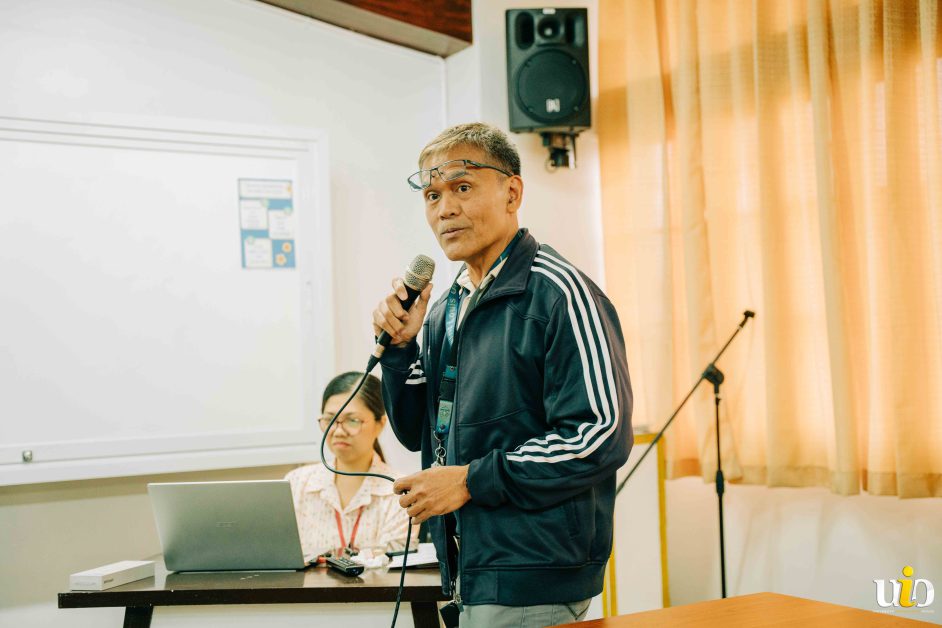Strengthening its commitment to institutional research and extension, the Saint Louis University (SLU) Research, Innovation and Sustainable Extension (RISE) Center held a training-workshop on strategic communication and impact assessment on 18 November 2025 at the Audio-Visual Room, Msgr. Charles Vath Building, SLU Main Campus.
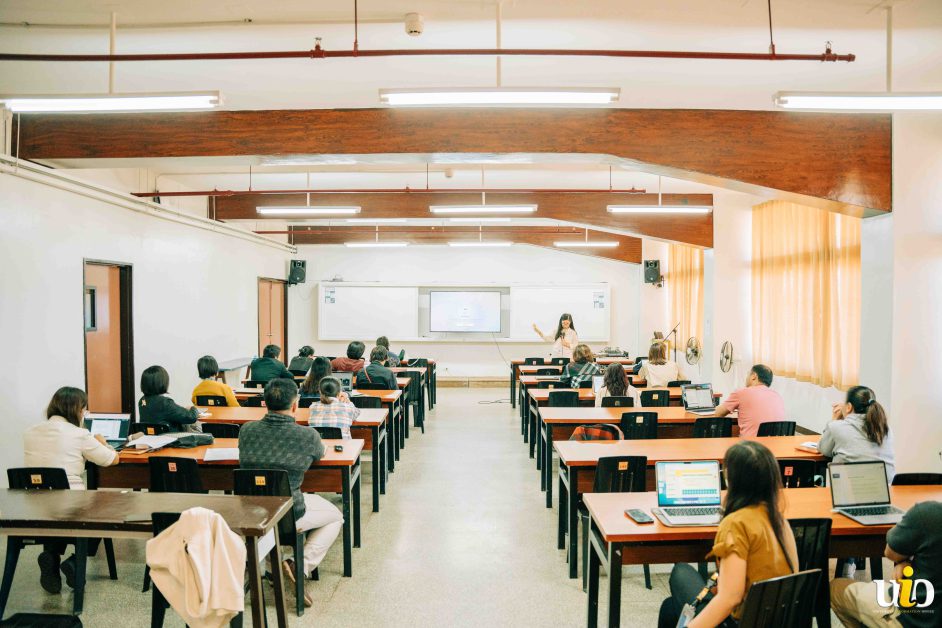
Attended by Extension Program Coordinators (EPCs), the activity aimed to strengthen the participants’ strategic communication and impact assessment competencies, particularly for projects approaching completion. The workshop also echoed insights from SLU’s participation in recent Cordillera Industry, Energy, and Emerging Technology and Development Consortium (CIEERDEC) training on the planning and execution and impact assessment output held in September and October 2025, respectively.
Richel Lamadrid, DAES, RISE Center Director, welcomed the participants and highlighted the importance of evidence-based assessment in enhancing the University’s extension programs.
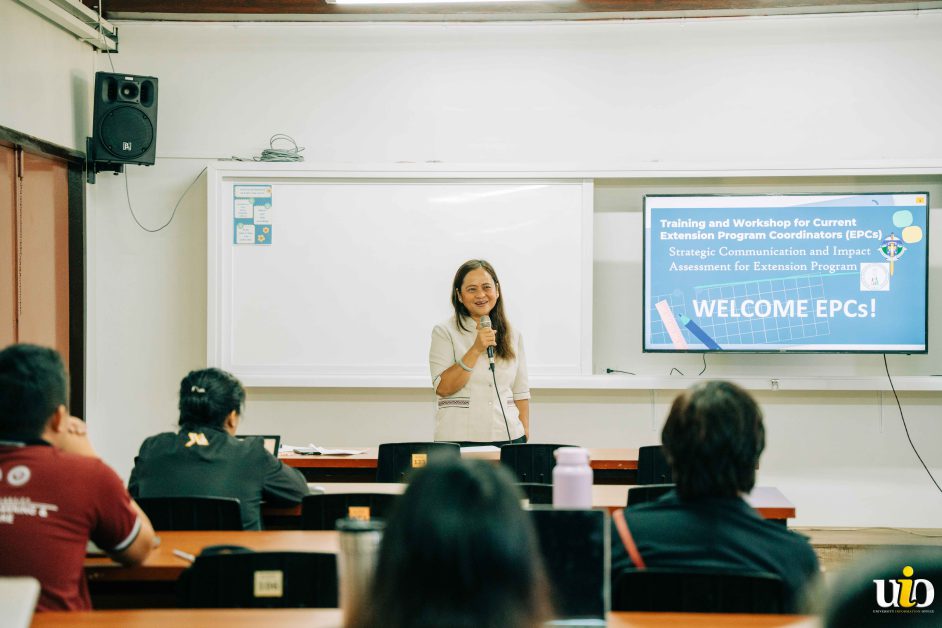
Starting the technical session, Jeramie Molino, PhD, RISE Center Sustainable Extension Head, introduced the essentials of impact assessment, discussing the different logic models, types of impact assessment, frameworks and tools used for data gathering and evaluation. Engr. Geraldine Nerona also shared some insights on best practices for impact assessment citing examples from successfully implemented SLU extension programs.
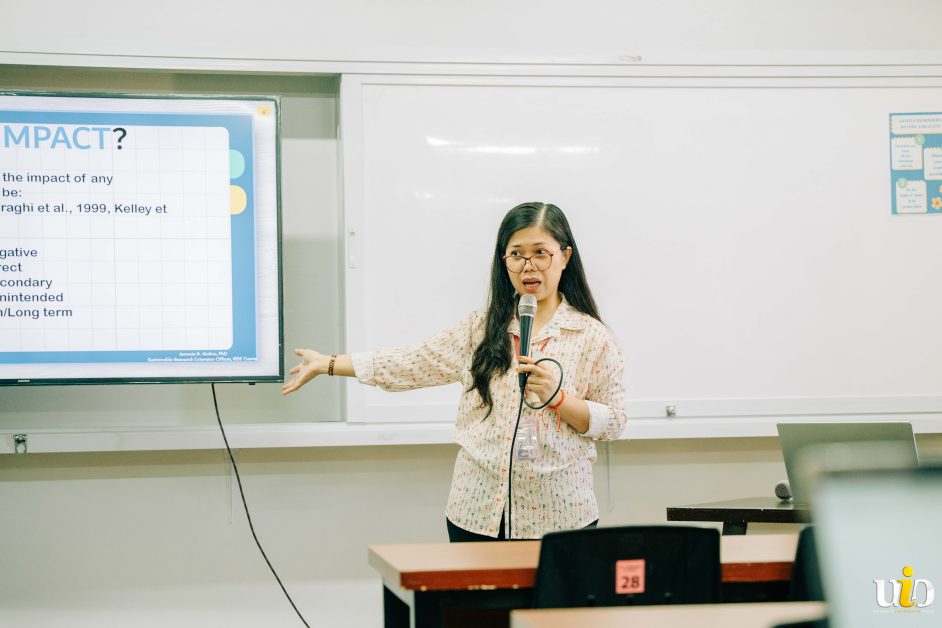
Following this was Engr. Harold Lagto, the Institutional Studies and Methods Officer, who discussed the importance of tool validation in impact assessment. “Validation is not optional; it is the foundation of “credible” impact assessment”, he said, emphasizing the importance of accurate and reliable data for impact assessment.
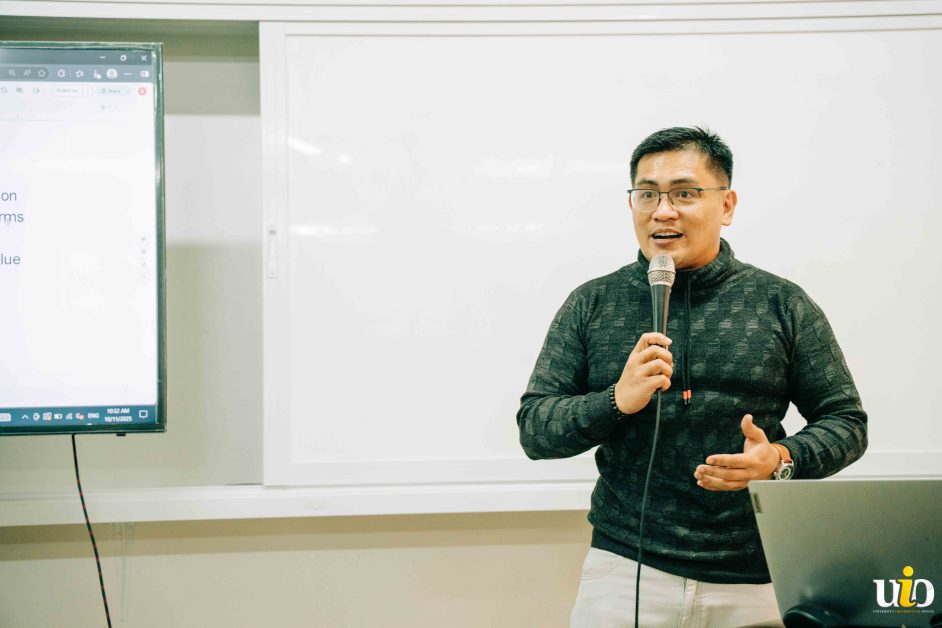
Afterward, Ranier Lacalle, PhD, Chair of the SLU Research Ethics Committee (REC), presented an overview of research ethics and the role of the REC in ensuring responsible conduct of assessments. He discussed ethical considerations such as informed consent, confidentiality, transparency, and the importance of risk assessment in safeguarding both participants and researchers during community-based evaluations.
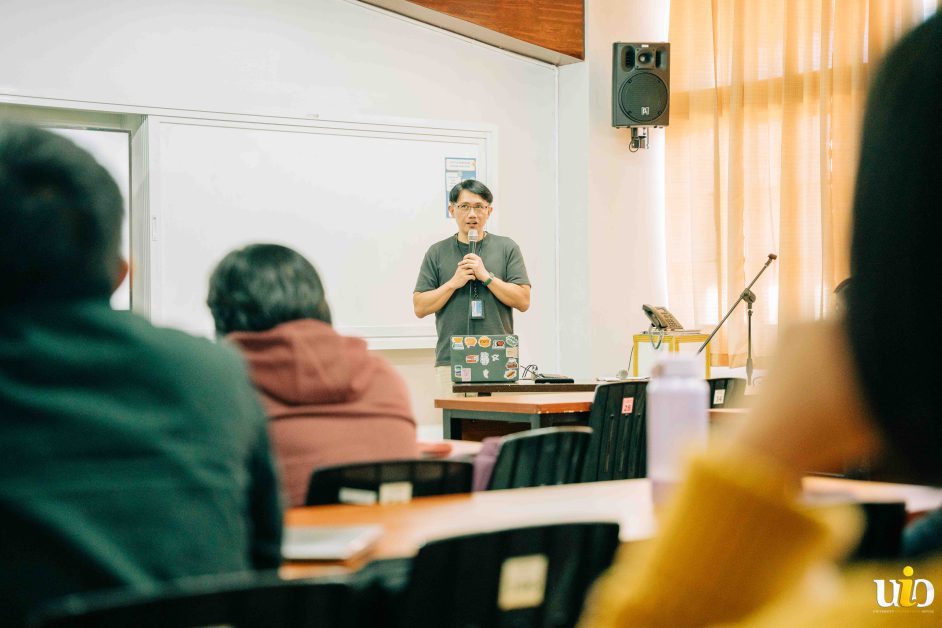
For the final session, Laarni Natividad, PhD, RISE Center Research Capacitation and Services Officer, discussed the importance of publication, science communication and social media visibility in extension programs. She focused on the importance of scientific publication in disseminating research findings to the community. Dr. Natividad also emphasized the role of visibility outputs in amplifying the reach and impact of SLU’s extension projects.
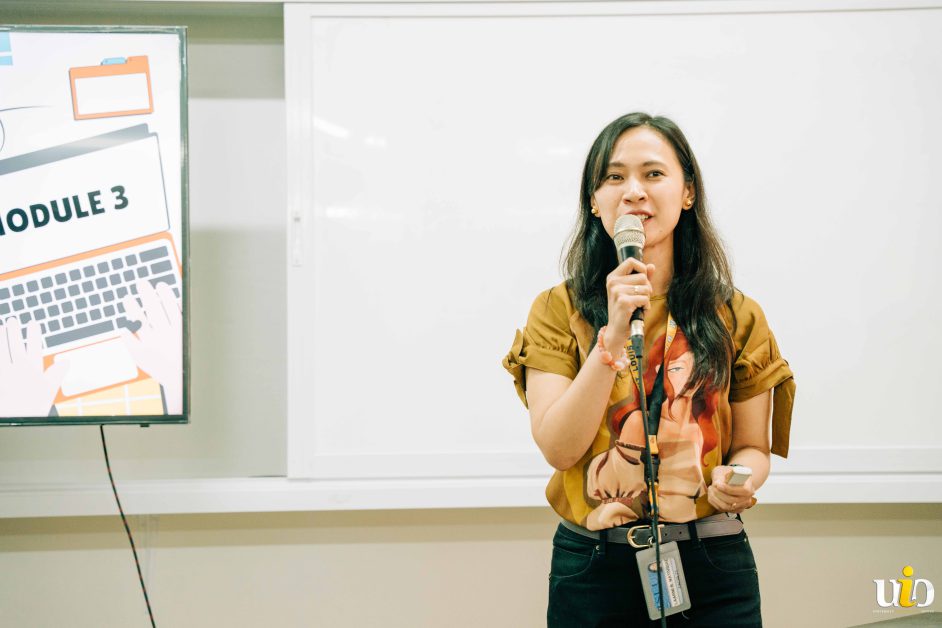
In the afternoon, participants applied the concepts through a workshop facilitated by Dr. Molino and Dr. Natividad on drafting their Impact Study Plans and Social Media Posts. EPCs then presented their outputs wherein they incorporated visuals, logic model, SciComm plan and their social media posts.
In line with SDG 4 (Quality Education), SDG 9 (Industry, Innovation, and Infrastructure), and SDG 17 (Partnerships for the Goals), SLU reaffirms its commitment to strengthening institutional research and extension leadership. (Article by Reijn Albert Vir Valdez, UIO Intern | Photos by Clark Justin Alenso, UIO Intern)
